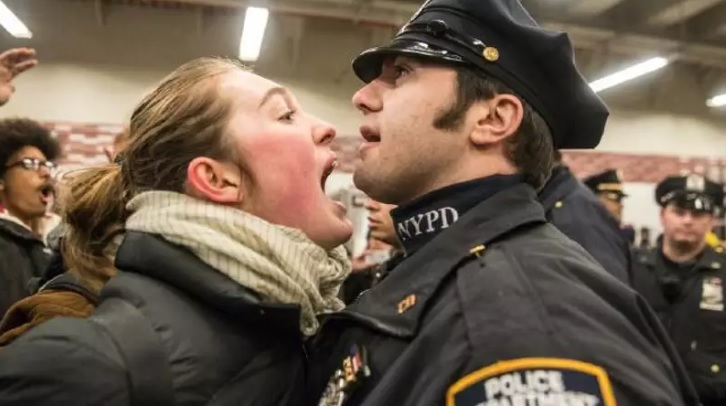

By Chief Joel F. Shults, Ed.D.
Ask any police officer serving today whether people are as likely to comply now than when they first began. Not likely. The level of hostility and contempt for police contribute to the phenomena of pre-escalation, the predisposition of a citizen to be argumentative and resistive during contact with police. Officers conditioned to expect compliance can no longer relax in that mind set.
A social trend
Sociologists and historians will be able to look back in coming years to measure changes in social trends and cultural values. Now we rely on anecdotal evidence which reveals increasing levels of passive as well as aggressive resistance to police contacts.
There have always been disgruntled citizens upset by the inconvenience or cost of a police contact. Police have always been met with a level of fear and tension, even suspicion, so that isn’t new. Police have always been vested with the authority to use coercion on behalf of government to maintain law an order.
Centuries before the founding of the United States, it was a well established understanding that the state should have the monopoly on violence. To prevent blood feuds, hasty lynchings, and duels to settle grievances and administer justice, a system of courts and government agents are instituted to ensure fair treatment of all, rendering individual efforts of revenge and recompense unnecessary.
This entrustment of power and authority to the government within the bounds of democracy was balanced by a high degree of accountability. Law officers could be unelected, dismissed, sued, and prosecuted for violating their lawful duties. This was part of the fabric the social contract between citizens and the government they created. That fabric is being torn by the antipolice movement demanding severe restrictions, defunding, or even abolition of the police.
Resisting as righteous
Like scolded teens rebelling against a parent’s correction, the resistance to correction by persons arrested by police has been an expected reaction among offenders. Although physical resistance was unlawful and punishable, it was infrequent and anticipated. For those truly innocent (as opposed to those legally presumed innocent by the justice system), resistance to police was often in the form of being indignant. Suspicion of wrongdoing was beneath them and they submitted under protest. There were also those who resisted because they knew that prison awaited them and calculated that resisting was not an unreasonable risk.
In the prevailing mood of many in the nation, citizens who would ordinarily, however reluctantly, cooperate with police officers performing their lawful duties, now consider resistance to be a noble strike against systemic police abuse. The calls for de-escalation, while a worthy goal, ignore the antipolice movement’s creation of pre-escalation – the increase in the number of citizens with a chip on their shoulder and willing to violate the old rules of cooperation with the police with the expectation of subsequent justification.
Consequences for police
The great and potentially tragic irony in the call for a reduction in police use of force is the potential increase in the need for it. For most police officers, most of the time, even a custodial arrest is made with cooperation from the person being arrested. As with all habits the repeated success of a police contact with citizens compling with lawful police directives can lead officers to ignore the increased probability that a citizen will be argumentative and resistive. Words cannot hurt an officer but delaying compliance until a hostile crowd gathers can.
A gentle guiding hand or gesture such as grasping the upper arm to lead a person to the patrol car is usually accepted by the suspect. In today’s environment he increased likelihood that an arrestee will twist, flee, or yell for help from the crowd makes these assumptions of compliance dangerous for the officer and the arrestee.
Critics will decry the claim that there is more frequent resistance. They will say that taking insults and navigating arguments are just part of the job and portend no danger to the officers. They will claim that everybody, everywhere, all the time, no matter what, can be de-escalated. They will claim that the kind of thinking articulated in this article only elevates officers’ likelihood of using force and fictionalizing its justification. These are specious arguments to those in contact with reality.
New training?
It is not rational to argue against better training on de-escalation. A harder case to make to the public is that officers need better and more frequent training on arrest control. Only those contacts with arrestees that can be quickly and effectively converted into reliable control holds should be used by officers. Verbal commands should be clear, concise, and firm so that an arrestee has no excuse for non-compliance.
Officers rely on compliance and they get it most of the time. Being ready for non-compliance is the safest tactic for everyone concerned, and more important than ever.